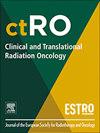Application and progress of artificial intelligence in radiation therapy dose prediction
IF 2.7
3区 医学
Q3 ONCOLOGY
引用次数: 0
Abstract
Radiation therapy (RT) nowadays is a main treatment modality of cancer. To ensure the therapeutic efficacy of patients, accurate dose distribution is often required, which is a time-consuming and labor-intensive process. In addition, due to the differences in knowledge and experience among participants and diverse institutions, the predicted dose are often inconsistent. In last several decades, artificial intelligence (AI) has been applied in various aspects of RT, several products have been implemented in clinical practice and confirmed superiority. In this paper, we will review the research of AI in dose prediction, focusing on the progress in deep learning (DL).
人工智能在放射治疗剂量预测中的应用和进展
放射治疗(RT)是当今治疗癌症的主要方法。为了确保患者的疗效,通常需要精确的剂量分配,这是一个耗时耗力的过程。此外,由于参与者和不同机构在知识和经验上的差异,预测的剂量往往不一致。过去几十年中,人工智能(AI)已被应用于 RT 的各个方面,一些产品已在临床实践中得到应用,并证实了其优越性。本文将回顾人工智能在剂量预测方面的研究,重点介绍深度学习(DL)的进展。
本文章由计算机程序翻译,如有差异,请以英文原文为准。
求助全文
约1分钟内获得全文
求助全文
来源期刊

Clinical and Translational Radiation Oncology
Medicine-Radiology, Nuclear Medicine and Imaging
CiteScore
5.30
自引率
3.20%
发文量
114
审稿时长
40 days
 求助内容:
求助内容: 应助结果提醒方式:
应助结果提醒方式:


